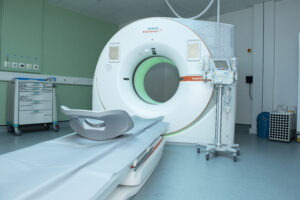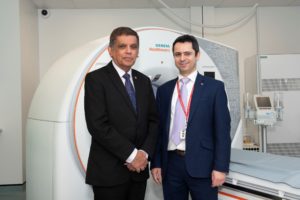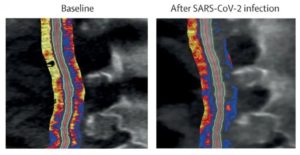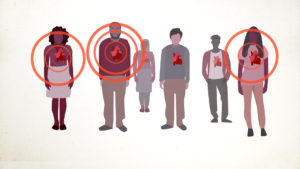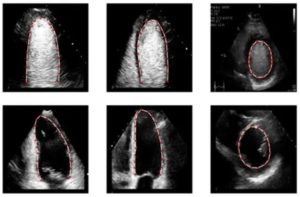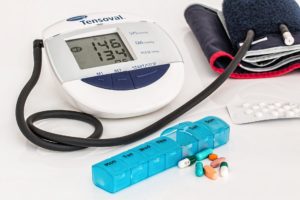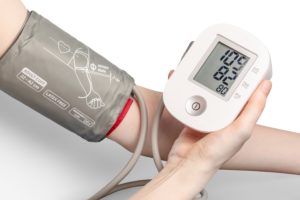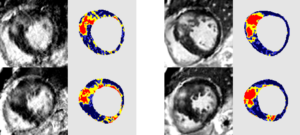An Oxford trial to detect atrial fibrillation has been designed to include as many eligible people as possible, including those who rarely interact with the healthcare system or take part in clinical trials. Working with 27 general practice surgeries, the AMALFI study, which is funded by the ... READ MORE
News for Cardiovascular Medicine
AI tool could help thousands avoid fatal heart attacks
An AI tool that can predict 10-year risk of deadly heart attacks, could transform treatment for patients who undergo CT scans to investigate chest pain, according to research supported by the NIHR Oxford Biomedical Research Centre (BRC). In the first real-world trial of the AI tool, it was ... READ MORE
Heart attack risk decreased in new mothers by self-monitoring blood pressure at home
Self-monitoring blood pressure after giving birth could help to cut new mothers’ risk of future heart disease and strokes, according to new research by Oxford researchers. The study, funded by the BHF and supported by the NIHR Oxford Biomedical Research Centre (BRC), could be the first step ... READ MORE
New imaging centre performs first stroke thrombectomy
A new imaging centre at the John Radcliffe Hospital carried out its first stroke thrombectomy. The Acute Multidisciplinary and Interventional Centre (AMIIC) carried out the procedure on 17 May as part of its partnership with Oxford University Hospitals (OUH) NHS Foundation Trust. A ... READ MORE
Barbara Casadei wins 2022 Lucian award
The Oxford BRC’s Theme Lead for Cardiovascular Medicine, Professor Barbara Casadei, has been awarded the annual Louis and Artur Lucian Award for outstanding research in the field of circulatory diseases. The award winner receives a prize of 75,000 Canadian dollars and is invited for a formal ... READ MORE
Professor Barbara Casadei named NIHR Senior Investigator
The Oxford BRC’s Theme Lead for Cardiovascular Medicine, Professor Barbara Casadei, has been named a National Institute of Health and Care Research (NIHR) Senior Investigator, while three other Oxford BRC researchers have been reappointed to this prestigious position in recognition of ... READ MORE
New imaging centre officially opened
A new Acute Multidisciplinary Imaging and Interventional Centre (AMIIC), based at the John Radcliffe Hospital, has been officially opened. AMIIC, part of the University of Oxford’s Radcliffe Department of Medicine, was previously known as AVIC (Acute Vascular Imaging Centre). The newly ... READ MORE
Professor Marian Knight recognised for services to maternal and public health
Professor Marian Knight, the Oxford Biomedical Research Centre’s Co- Theme Lead for Cardiovascular Medicine, has been recognised in the New Year Honours list 2023. She was appointed Member of the Order of the British Empire (MBE) for services to Maternal and Public Health. Professor ... READ MORE
One in eight people have undiagnosed nighttime hypertension
Around 15 percent of people aged between 40 and 75 may have a form of undiagnosed high blood pressure (hypertension) that occurs only at nighttime. Because they do not know about this, and are therefore not being treated for it, they are at a higher risk of cardiovascular disease such as ... READ MORE
Study develops radiotranscriptomic AI analysis to enable virtual heart biopsies
Oxford University researchers have found a new way of directly quantifying vascular inflammation in COVID-19 patients, in a study that could pave the way to more efficient trials of new treatments and identify patients who might be at risk of long-term complications. The study, which was ... READ MORE
Oxford receives major BHF award to research cure for inherited heart diseases
An injectable cure for inherited heart muscle conditions that can kill young people in the prime of their lives could be available within a few years, after an international team of researchers were announced as the winners of the British Heart Foundation’s (BHF) Big Beat Challenge. The BHF ... READ MORE
Review highlights impact of Long COVID on cardiovascular system
The wide-ranging effects of long COVID and the associated issues for healthcare providers have been revealed in a new review of the major studies into the condition, which specifically highlights the impact of long COVID on the cardiovascular system. The review, published in the European Heart ... READ MORE
Doctors making AI-assisted decisions more accurate and confident in decision-making
New research has shown that doctors who use an artificial intelligence (AI) algorithm to assess echocardiograms are more accurate and more confident in their decision making. The study, published in the journal JACC Cardiovascular Imaging, is the first to show that an algorithm can ... READ MORE
Blog: the implications of the OxVALVE-Survive study on GP practice
Academic GPs Dr Clare Taylor and Dr Nick Jones (pictured) from the University of Oxford’s Nuffield Department of Primary Care Health Sciences outline the findings of the OxVALVE-Survive study and implications for their own clinical practice. Valvular heart disease occurs when valves become either ... READ MORE
Blood pressure drugs could protect against type 2 diabetes
Lowering high blood pressure is an effective way to reduce a person’s risk of developing type 2 diabetes in the future, according to a new study. Doctors already prescribe blood pressure-lowering drugs to reduce a person’s chance of having a life-threatening heart attack or stroke, but whether ... READ MORE
British Heart Foundation Cardiovascular Catalyst Awards
The BHF are pleased to announce an upcoming call for applications to fund research into the use of advanced analytics to improve cardiovascular care delivery and outcomes in the NHS. A £1 million fund is available, and proposals for research projects lasting up to two years and costing up to ... READ MORE
Lowering blood pressure still beneficial for the heart in old age
Oxford University researchers have found that blood pressure medication is still effective at reducing the risk of a heart attack and stroke in old age, even if blood pressure is in an apparently healthy range. The research by Professor Kazem Rahimi, who is supported by the NIHR Oxford ... READ MORE
BRC-supported study receives Best Research Paper Award
A leading cardiology journal has named an academic paper written by Oxford BRC-supported researchers as its best research paper of 2020. The paper – which found that two common heart medication do not increase the risk of COVID-19 hospitalisation – was named by the BMJ Heart journal as the ... READ MORE
“Modest” increase in heart attack hospitalisation rates after years of decline
The burden of hospital admission rates due to heart attacks in England rose between 2012 and 2016, despite decades of falling rates, new research suggests. The researchers also found that after 2010-2011, admission rates increased in most age groups. Young women aged 35 to 49 and even younger ... READ MORE
AI replaces contrast dye for fast, cheaper and needle-free cardiac MRI scans
A team from Oxford comprising artificial intelligence (AI) scientists, magnetic resonance specialists and cardiologists have developed a new cardiac magnetic resonance (CMR) scan for detecting heart muscle disease. The current ‘gold standard’ for imaging heart muscle disease is CMR, using a ... READ MORE
- 1
- 2
- 3
- 4
- Next Page »



